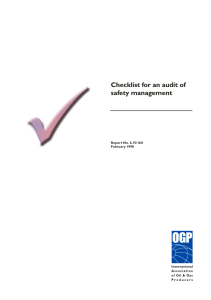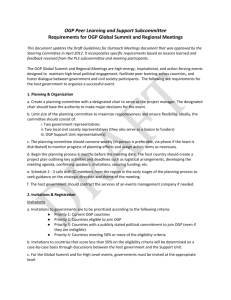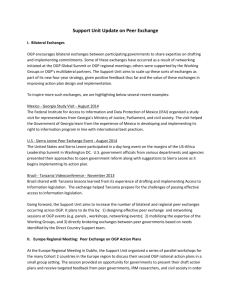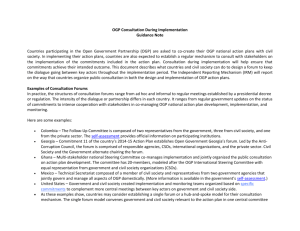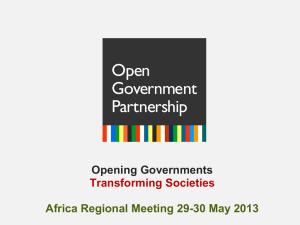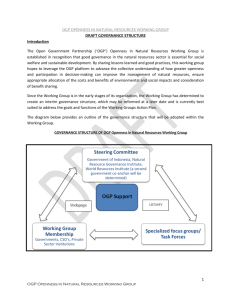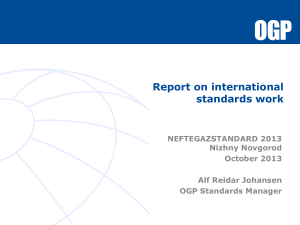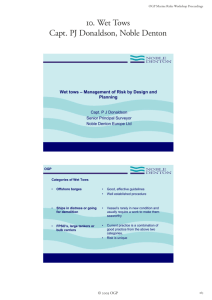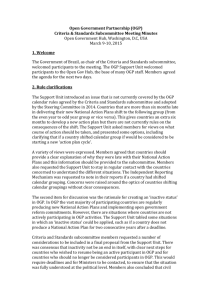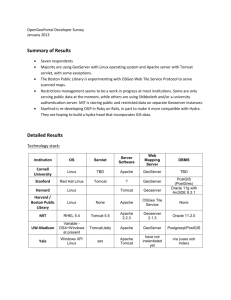MBC Commentary on the Independent Reporting Mechanism
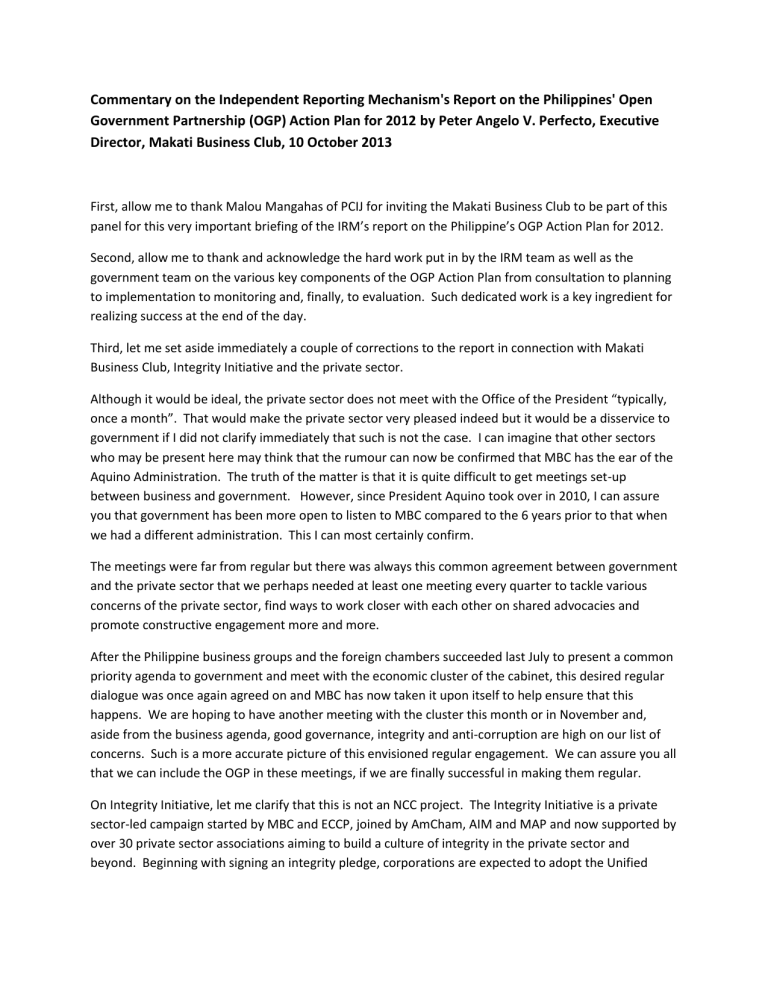
Commentary on the Independent Reporting Mechanism's Report on the Philippines' Open
Government Partnership (OGP) Action Plan for 2012 by Peter Angelo V. Perfecto, Executive
Director, Makati Business Club, 10 October 2013
First, allow me to thank Malou Mangahas of PCIJ for inviting the Makati Business Club to be part of this panel for this very important briefing of the IRM’s report on the Philippine’s OGP Action Plan for 2012.
Second, allow me to thank and acknowledge the hard work put in by the IRM team as well as the government team on the various key components of the OGP Action Plan from consultation to planning to implementation to monitoring and, finally, to evaluation. Such dedicated work is a key ingredient for realizing success at the end of the day.
Third, let me set aside immediately a couple of corrections to the report in connection with Makati
Business Club, Integrity Initiative and the private sector.
Although it would be ideal, the private sector does not meet with the Office of the President “typically, once a month”. That would make the private sector very pleased indeed but it would be a disservice to government if I did not clarify immediately that such is not the case. I can imagine that other sectors who may be present here may think that the rumour can now be confirmed that MBC has the ear of the
Aquino Administration. The truth of the matter is that it is quite difficult to get meetings set-up between business and government. However, since President Aquino took over in 2010, I can assure you that government has been more open to listen to MBC compared to the 6 years prior to that when we had a different administration. This I can most certainly confirm.
The meetings were far from regular but there was always this common agreement between government and the private sector that we perhaps needed at least one meeting every quarter to tackle various concerns of the private sector, find ways to work closer with each other on shared advocacies and promote constructive engagement more and more.
After the Philippine business groups and the foreign chambers succeeded last July to present a common priority agenda to government and meet with the economic cluster of the cabinet, this desired regular dialogue was once again agreed on and MBC has now taken it upon itself to help ensure that this happens. We are hoping to have another meeting with the cluster this month or in November and, aside from the business agenda, good governance, integrity and anti-corruption are high on our list of concerns. Such is a more accurate picture of this envisioned regular engagement. We can assure you all that we can include the OGP in these meetings, if we are finally successful in making them regular.
On Integrity Initiative, let me clarify that this is not an NCC project. The Integrity Initiative is a private sector-led campaign started by MBC and ECCP, joined by AmCham, AIM and MAP and now supported by over 30 private sector associations aiming to build a culture of integrity in the private sector and beyond. Beginning with signing an integrity pledge, corporations are expected to adopt the Unified
Code of Conduct, undergo integrity self-assessment, go through a validation process, address integrity gaps and, ultimately, earn integrity certification.
The initiative is a perfect fit with one of the OGP challenges of “Increasing Corporate Accountability— measures that address corporate responsibility on issues such as the environment, anti-corruption, consumer protection, and community engagement”. The initiative was in fact part of the original OGP action plan but was somehow removed. We wonder why this has happened especially now that it has become clear that public-private partnership is required for this initiative to succeed. Many companies, especially the SMEs, are finding it difficult to even just sign the pledge because the current system still rewards those willing to pay the bribe, resort to facilitation and agree to commissions and pay-outs.
Ethical behaviour remains a competitive disadvantage. Government is key so that ethical behaviour can be rewarded and become a competitive advantage. Government must provide incentives for validated and certified companies with least priority audit status at the BIR and super green lanes at the BOC for example. As a starting point, government can signal a new order by requiring all potential suppliers and contractors of government and its projects to sign the Integrity Pledge.
Finally, on to more substantive comments on the report:
1.
I believe that the best component of the OGP is the independent reporting mechanism. And, after reading the report, I am even more pleased that Malou and PCIJ were given this task. This is further proof that this government does indeed want to be fully transparent and held accountable. This is once again another opportunity for other stakeholders to help ensure that our democracy can work.
2.
I fully agree with the recommendations and would like to add consideration for the option to engage a non-government organization to facilitate the crafting of future plans with close guidance and supervision of a lead agency like DBM or OP. When I say non-government, this may be an independent professional group like what has been done by PCIJ for the reporting. A highly respected group like SWS or ICD could help ensure wider participation among the various stakeholders. Such groups can employ more effective and scientific tools like surveys and FGDs to get better plans in place. This will help free up more time of our government professionals to focus on ensuring more substantive input into the plan and on how best to roll out and implement the finalized OGP action plan.
3.
Finally, I believe that we need to ensure more accountability as well from the stakeholders.
Stakeholder engagement must not be only at the consultative planning and consultative evaluation stages. Engagement must be continuing. It must happen at all levels and these various stakeholders must make a commitment as well to the roll-out and implementation. At the minimum, they should have a continuing monitoring role and they must be empowered to provide regular feedback as well as to assist in implementing various aspects of the plan.
When I was with PBEd before, we all agreed that education cannot be left to government alone. I daresay now that open governance cannot be left to government alone!

